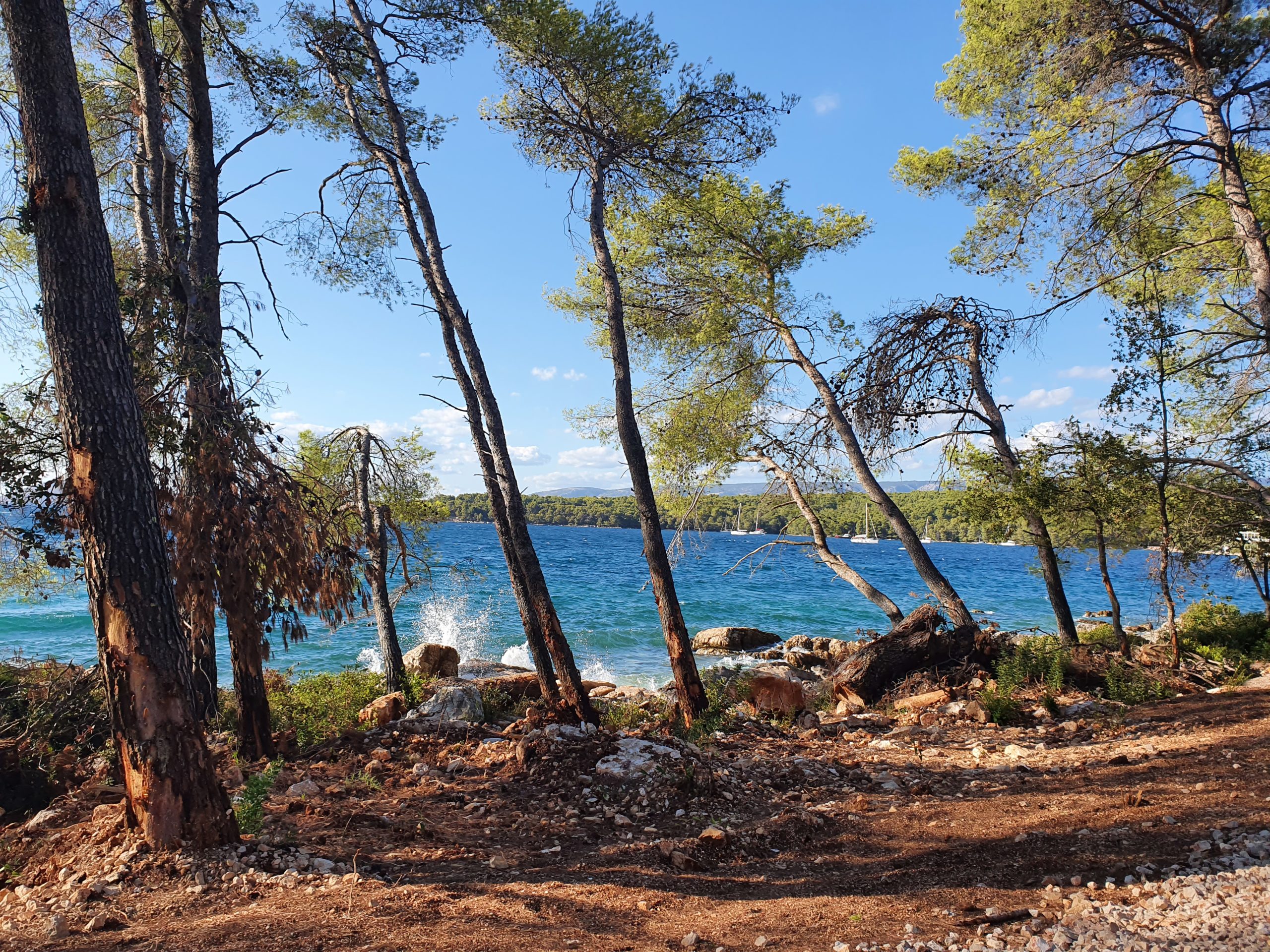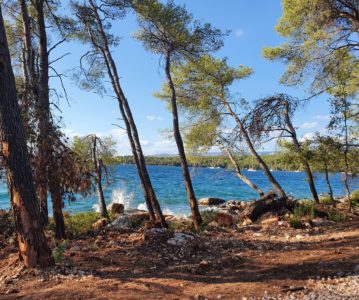Breakfast is served with a beautiful view of the calm sea and the offshore islands. Since we are both heading towards Split, it is obvious that we set off together today. To escape the main road, we soon sweat our way up smaller roads and are rewarded with wonderful views of the glittering sea. It drives well today, it is hot and after an extended Mittagssiesta, we cycle only against evening in Split. Split is located on a peninsula and seems to me on the approach like a tin-swallowing concrete fortress. The streets become wider, the traffic denser and the canyons of houses deeper. Light signals force us to laboriously stop and go with the fully loaded bicycles. It is hard to imagine that somewhere in this place a Unesco World Heritage Old Town should be hiding.
We find the visitor-soaked old town then actually still. Quite pretty and old and steeped in history, but after my first impressions I have Split unfairly already provided in a certain drawer. After a night of purpose in the hostel I grab myself the next noon a ferry to Hvar. Hvar is one of the 1300 (!!) Croatian islands; just under two hours from the mainland and offers a good way to get around part of the traffic-intnsive coast. It lies like a long tongue parallel to the Makarska coast and is fortunately accessible from both sides by ferry boats.
The world seems a little different on Hvar. Still touristy, but much much more relaxed than the coast. The air smells of lavender, pine trees, figs and ripe grapes, countless bays invite you to swim with their crystal clear water. The few roads wind between the olive groves and vines from village to village. The larger villages are of course all on the waterfront and luxurious sailing boats invite you to linger.
I lie in my newly acquired hammock, read, wash my clothes, explore the island and occasionally jump into the water. Break days.
I spend the third night on the island on a rock near Marian’s summer home. The life artist, who says of himself: “I am inside buddist, outside anarchist” spends the warm summer months in a cheap supermarket tent right by the sea. Somewhat protected from view thanks to a stone wall, he lets the days pass here, seems to know everyone, turns joint after joint sitting in his hammock, cracks wise, laughs uproariously and doesn’t take himself and life in general too seriously.
When I push my loaded bike against evening, he and an already well drunk colleague just stumbles towards some party in the next bay. I cook myself dinner (salted pasta; seawater must be diluted!) and then settle down to sleep in the darkness sometime.
It’s not long before the party crowd stumbles back into their bushes and already Marian is waving a flashlight around and I can hear him shouting “Simone! Come here, we have a little party!”
Okay. The little company sounds well drunk but is certainly friendly, so I crawl back out of my blankets and join the merry group. I’m handed a “domestic” Schnapps and soon a joint, and am immediately welcomed into the drunken circle. Party members are Marian as host, Thoma and Druce, two longtime friends, Rieka, originally from Montenegro but now at home in Germany and Julia, a young mother from Jelsa and me; the Swiss with the bike.
While Thoma tells dirty jokes in somewhat broken English, Druce explains to me that the best way to drink a lot is to eat a little at a time, and so he begins to cut up tomatoes, bacon and bread on a rickety table construction on a checkered drying cloth, places the salt shaker next to it and everyone urges me to please take some of the “domestic” food. “Domestic” is the very best. But Druce says dryly: “We say domestic, but it`s bullshit. It is imported from who knows where”. Everyone bursts out laughing. Finally, the conversation turns to the drunken colleague. Apparently he is already sleeping off his drunkenness somewhere in the bushes. In his drunken stupor, he probably caught some minor injury, which the friends explain with a wink: “You know, he fell from a stawberry tree!”
Between the sayings and jokes, the friends also tell me more serious things. Thoma, with the string of lights on his head, apparently has heart problems. The doctor has diagnosed him with what is known as an athlete’s heart. The heart only works as it should under heavy strain; a late consequence of 1.5 years of service as a soldier in the war. Every day he had to carry a 45 kg backpack around.
There it is again. The war. There is a life before and a life after. Which men do you think I meet on my journey served as soldiers? Did they do bad things? What did they believe in? What emotions and orders were they driven by? At what cost did they survive? A journey through former Yugoslavia is also putting together history puzzles. Everyone mentions the war sooner or later. Everybody has his point of view and his point of view. The more I read and hear about this war, the more complex it seems. Even today, almost 30 years later, it is present. Like a troubled nightmare, it hovers over these countries and lives on in the non-forgiveness and painful memories.
“I like you a lot,” Thoma exclaims when I mention that I quit my job in Switzerland for this trip. In this society, the thought of a regular life actually seems absurd and not very desirable. A feeling that will accompany me for the next few days. In favor of what kind of security do we invest our precious life time in clearly separated office and leisure time? At the moment I don’t really know.
Druce tells me that he once lived two years in Amsterdam, then seven years in France and also in other places in Europe. He speaks Bosnian Croatian (actually the same, if I understand correctly), Italian, English and French. He has close relatives in Switzerland and Germany. He is not the first person to tell me such a story.
It almost seems to me that people from the Balkans are the true Europeans.
Translated with www.DeepL.com/Translator (free version)


